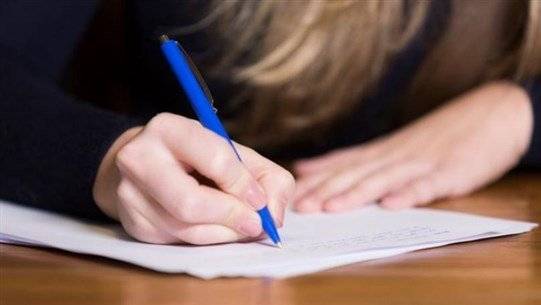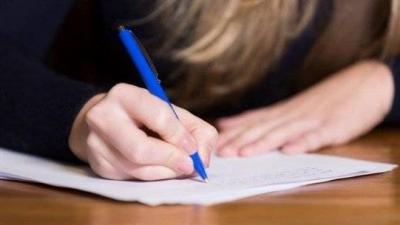A large number of secondary education teachers received with astonishment and disbelief the results of the official exams for the current academic year 2021-2022. The marks are "fantastic," according to their expression. One teacher opens his notebook to confirm his observation, pointing to the name of a student whose chemistry average did not exceed 4 out of 20, yet in the official exam, he received 17 out of 20. Another teacher insists that someone who received a "good" grade this year would not have even reached an average of 12 out of 20 in previous years. The other colleagues wonder about the reality of these marks reflecting the academic level of their holders. They do not want to undermine their students' feelings or dampen their joy, so they did not turn to social media to express their outrage. Preferred, as usual, were closed rooms and groups to sound the alarm and tell their ministry: "The achievement is not in conducting the exams but in maintaining the level of the certificate."
The inversion of standards is confirmed by reports from the educational center. The success rate in the economics and sociology section for this year, for example, reached 90%. This inflated percentage applies to other sections as well, and its calculation was based on the total number of candidates, not the actual participants. Had it been calculated without considering the number of absent students, it would have risen even more. The "great disaster," according to one teacher, is the "distribution of grades to everyone." The percentage of those who received grades of "good" and "very good" exceeds the percentage of successful candidates below that in the recent official exams, reaching over 70% according to the result lists published by the ministry, after detailed grades could not be obtained. In previous years before the 2019 session, achieving a grade in the exams was considered difficult, whereas today the lack of achievement leads to saying that the student did not study enough.
In an attempt to gauge the opinions of the teachers involved in setting the official exams and the grading criteria, we were surprised by the lack of response from several, as if the matter were a national security secret. This prompted us to search further for the reasons, especially since the matter is indeed parallel to national security; damaging the Lebanese certificate in this way will produce generations expecting success in all areas of life with the same ease. The facilitation of success was glaring, and the marks in literary subjects are a clear indication. A student in the Life Sciences class received 29 out of 30 in philosophy! These marks raise many questions about the grading methodology and distribution, knowing that marks in literary subjects previously did not exceed 17 out of 20, even if the student was exceptional. Here, a French literature teacher confirms the ministry's directives to ease exams and grading criteria to allow exams to pass smoothly.
The teachers continue to express their fear of what has occurred. They see this as "precedents" that are likely to be repeated in the upcoming academic years. At the level of supervision, leniency reigns supreme, as one general supervisor informs that "the center director gathered them before the exams began and asked them to look the other way." The justification was "the students' lack of preparation after two years of repeated closures." He adds that she "asked the teachers to consider the students as their own children." The same is repeated this time by the head of one of the centers: "I need a supervisor over the supervisor, as some behave in class as if they neither see nor hear what is happening," concluding with a lament for the days of (Minister Akram) Shihab, who installed cameras in classrooms to reduce or stop cheating. Here, one can compare success rates and notice their decline in 2019, the year the cameras were installed in classrooms.
As for the level of competitions, teachers agree on "the average despite cancellations." The curricula, which are approaching a quarter-century in age, no longer assist in finding new questions, but the grading criteria were lax "to the maximum extent," according to a teacher involved in grading chemistry. "The committee for this subject is among the strictest," he notes, yet they decided to distribute grades for "every ink dot in the exam." He adds: "Previously, we would not give a grade for an answer without seeing the solution method, but today, the situation was different; we assigned parts of grades for answers without solutions." Furthermore, "the grade was divided into parts for every detail, making it impossible for a student not to receive part of it." Lastly, the optional subjects alleviated the pressure on students, who focused all their study efforts on the core subjects, choosing material that yields grades based on memorization, such as history, while neglecting analytical subjects like geography and philosophy.
Thus, it is a comprehensive basket that led to this scene in the results of the official exams. Deceptive marks that do not reflect reality. "This is a blow to the official certificate from its own house," says one philosophy teacher, adding that we can no longer say that "Lebanese baccalaureate graduates are equal under the same curriculum; those who obtained a certificate this year are nothing like those who obtained it before 2019."




